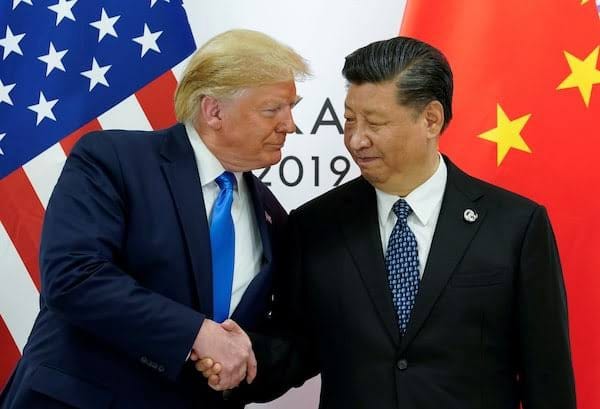China braces for tensions with US as Trump returns to White House
Chong Ja Ian, a political science associate professor at the National University of Singapore, told DW, “Although Trump may be less inclined towards military conflict, he is quite suspicious of China in other areas, even harboring a certain degree of hostility.”

As President Xi Jinping congratulated Donald Trump on his U.S. election victory Thursday, he has called for strengthened dialogue between the two nations, hoping both sides can “find the right way to get along in the new era.” However, experts warn that Trump’s return to the White House could usher in even more intense U.S.-China rivalry, particularly in trade and economic policies.
Chong Ja Ian, a political science associate professor at the National University of Singapore, told DW, “Although Trump may be less inclined towards military conflict, he is quite suspicious of China in other areas, even harboring a certain degree of hostility.”

One of the primary concerns is Trump’s proposed economic policies, especially a possible 60% tariff on all Chinese exports. This move could further destabilize China’s economy, already struggling with rising youth unemployment, a sluggish real estate market, and increasing government debt. Ilaria Mazzocco, deputy director at the Center for Strategic and International Studies (CSIS), warned that, unlike President Biden’s more targeted approach, Trump’s stance would likely escalate tensions and affect large parts of the global economy. “Trump is likely to come in with broader concerns about the US economy, and I think much more willingness to push for decoupling in larger swaths of the economy,” Mazzocco said.
China, aware of the looming economic challenges, has already made moves to mitigate the impact of potential trade wars. Beijing has retaliated by imposing new tariffs on American industries and diversifying its markets to shield its economy from shocks.
Meanwhile, Trump’s “America First” policy, characterized by a more isolationist approach to foreign relations, leaves U.S. allies caught in the crossfire. Ali Wyne, senior analyst for US-China Affairs at the International Crisis Group, noted that this could provide China with an opportunity to “weaken the set of Eurasian alliances and partnerships” that the Biden administration has worked to strengthen.
Taiwan, a contentious issue in U.S.-China relations, also looms large. Trump’s recent remarks about Taiwan paying “protection fees” for U.S. support raised alarms. Wen Liu, a researcher at Academia Sinica in Taiwan, pointed out that, “Even if he is anti-China or wants to compete with China, it does not necessarily mean that he will protect Taiwan.”
With Taiwan’s defense budgets under scrutiny, many Taiwanese citizens remain skeptical of Washington’s commitment to its security, especially if it seems driven by U.S. strategic interests. The upcoming U.S. Congress, now Republican-controlled, may push Taiwan to further bolster its defenses, potentially intensifying the island’s concerns.
As both countries brace for the potential fallout from Trump’s second term, the global community watches closely, anticipating an even more turbulent era in U.S.-China relations.














